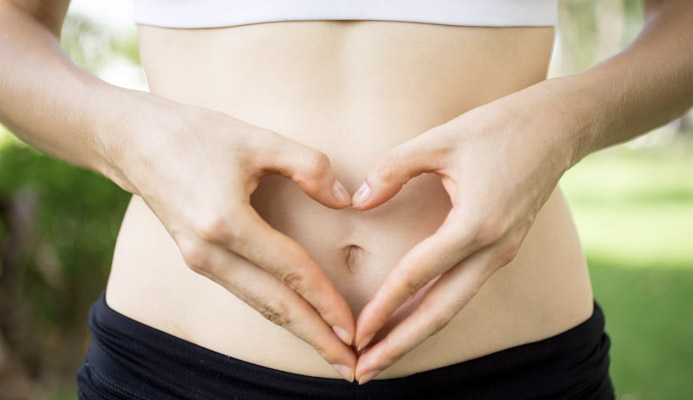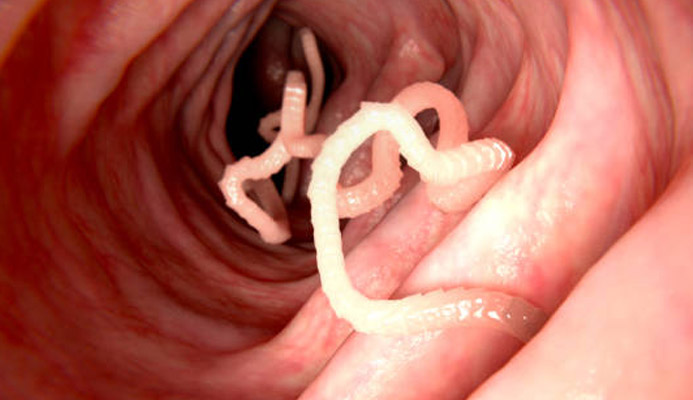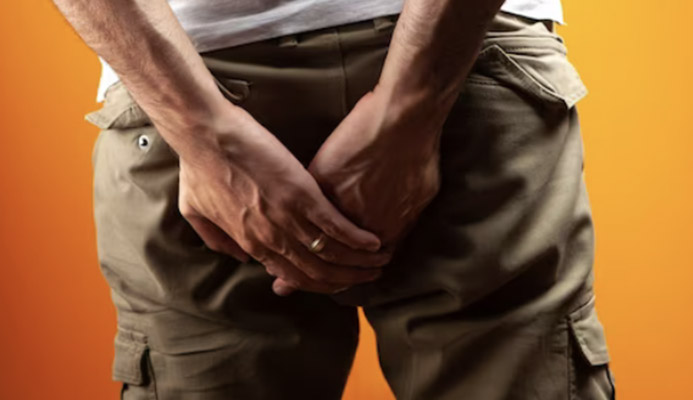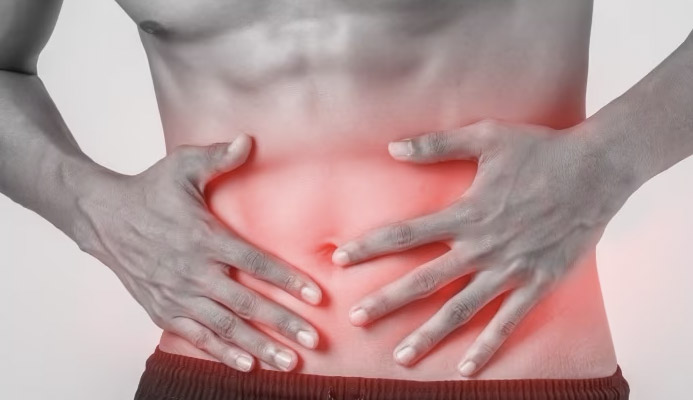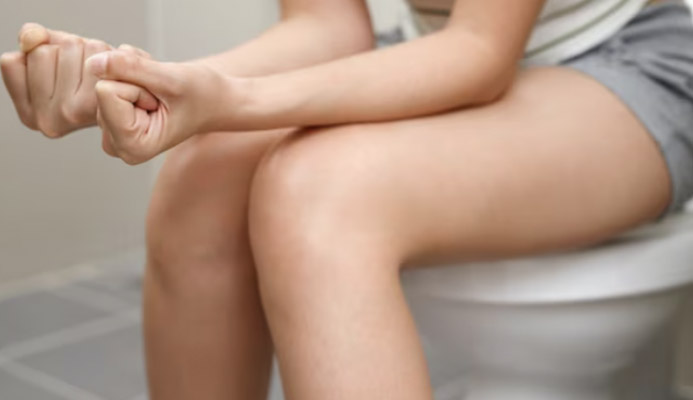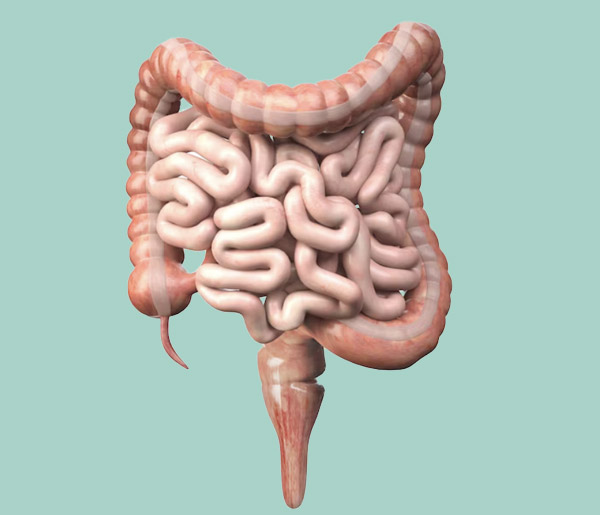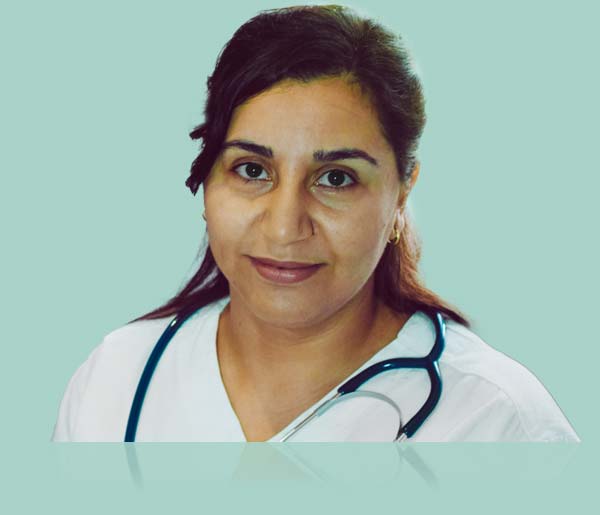
Do you suffer from chronic constipation?
Are you unable to go to the bowels on a regular basis, and do you not experience the natural daily urge, which allows you to release and feel good?
Ut enim ad minim veniam, quis nostrum exercitationem ullamco laboriosam, nisi ut aliquid ex ea commodi consequatur. Duis aute irure reprehenderit in voluptate velit esse cillum dolore eu fugiat nulla pariatur.
Constipation is an extremely disabling disease condition that is capable of greatly diminishing quality of life and, in not uncommon cases, even going so far as to alter the patient's social behaviors.
Read this page written by Dr. Luisella Troyer, Proctologist Surgeon, to find out the origin of this condition, as well as discover what can be done to resolve it.
Until the early 1900s, Italy was an extremely poor country, in which the condition of illiteracy reached the monstrous figure of about 95 percent of the entire population.
There were no large industries, and most of the work was absorbed by agriculture (a condition typical of underdeveloped countries).
Under these conditions, difficult even to imagine for an Italian today, the diet of most people was compulsorily poor, based essentially on the consumption of vegetables, cereals, fruits and vegetable oils.
Animal protein was a luxury rarely indulged in, and it almost always came from fishing or from poultry or pigs: expensive oxen were a valuable commodity,used as a labor force, and certainly not eaten.
This diet, low in protein but still complete, in which ample importance is given to fruits and vegetables, is still one of the best diets in the world, and is called the 'Mediterranean diet'.
With the end of widespread destitution and the beginning of the 'economic boom' shortly after World War II, slowly even in Italy the changes brought by the abundance of food changed culinary traditions, bringing some improvements and, conversely, some deterioration.
Among the maluses of the new hyper-caloric habits were not only the spread of obesity and the increase in diabetes, but also the change in bowel habits, with a marked increase in constipation problems.
Nowadays, problems of pathological hemorrhoids, proctitis, fissures, and constipation are found even in very young boys, much more than in the past: this is probably due to the radical change in eating habits, which no longer favor the decided consumption of vegetables and fruits, but rather hyper-proteic and, increasingly, hyper-caloric regimens .
What is constipation?
Constipation is the inability to evacuate soft, well-formed stools regularly on a daily basis, which is instead replaced by infrequent, difficult defecations, with stools that are particularly hard and uneasy to expel.
Defecation, in healthy humans, is a physiological act that is performed on a daily basis, in which approximately 150g of stool (European and North American average) is emitted that is well-formed, cylindrical, soft in consistency, and not excessively unpleasant smelling.
However, this average is susceptible to variations depending on the subject, which are not necessarily a symptom of pathology.
On a generalist level, considering that the parameters of constipation must be assessed rather elastically, constipation can be defined in a patient who, for at least 12 months, has been experiencing at least two of these symptoms:
- Less than two evacuations per week;
- One in four defecation is difficult and/or painful, with excessive pondering on the part of the patient, and great effort in getting the stool out;
- One out of every four defecations has an altered, excessively hard, 'goat' shaped alvo consistency
- One in four defecation leaves the sensation of incomplete emptying (tenesmus)
Therefore, it should be remembered that these symptoms must be chronic over time to consider the diagnosis of constipation.
Small, isolated, temporary variations to daily defecation, or the presence of this symptomatology in sporadic cases, is not sufficient to define the patient as 'constipated'.
How common is constipation in the human population?
Constipation is a worldwide phenomenon that has plagued humans for millennia.
Accurate data are impossible to obtain, as the condition is often undiagnosed, as sufferers tend to underestimate the problem, preferring self-diagnosis and 'do-it-yourself' treatments, and not seeking the help of a Physician.
With the benefit of this doubt, WHO estimates that at least 20% of the entire Western population is affected, with a higher incidence in the female population.
The overall incidence of constipation tends to increase considerably with age: after the age of 65, in fact, the percentage of the constipated population can reach and exceed 40% of the total.
Significant numbers, therefore, which, at the expense of a constant demand for treatment, are not, however, met by the medical supply, which is often confined almost exclusively to laxatives and purgatives.
What are the causes of constipation?
Constipation is a complex condition, the causes of which are very difficult to define, even to a good approximation.
There can be many reasons for the abnormal variation in regular defecation, but in an attempt to at least roughly classify the origin of the problem, two main types of constipation are distinguished in Medicine: primary (or idiopathic) constipation and secondary constipation.
Primitive, or idiopathic, constipation is the type that, as the name suggests, has congenital origins.
It is almost always related to original dysfunction of the colon, or to chronic and specific psychophysical states, such as irritable bowel syndrome.
Some of these states are temporary, and due to special and temporary situations, such as pregnancy constipation, which afflicts pregnant women.
Simple constipation, perhaps the most common form of primitive constipation, does not have a well-defined etiology, but is suspected to be related to a low-fiber diet, a particularly sedentary lifestyle, and a patient's congenital habit of holding stool (sometimes, this is related to lack of adequate urge).
Secondary constipation, on the other hand, is attributed to endocrine, neurological, congenital intestinal disorders or even induced by drug therapy (iatrogenic constipation).
In individuals addicted to heroin, or in patients on constant opiate therapy, iatrogenic constipation is the leading cause of chronic constipation.
In women, one of the causes of constipation is what is referred to as inertia coli: a particularly aggressive form that leads to defecation at very long intervals, about every 7-8 days, with abnormally large stools compared to the average.
Rectal constipation from obstructed defecation occurs when the rectum, instead of being properly rectum, twists at an angle, which prevents the complete and easy release of stool.
This is a typical mechanical problem, which is a more obvious symptom in women of the rectocele condition.
Colic constipation, on the other hand, is constipation due to a slowing of colon peristalsis, which in turn generates an alteration in the timing of stool release, which transits much more slowly through the intestines and, as a result, becomes harder and more difficult to expel.
What are the symptoms of constipation?
Regardless of the type of constipation and its origin, all constipated patients demonstrate common symptoms, manifesting in an inability to evacuate regularly and easily on a daily basis.
Almost always, each defecation occurs many days after the last one, and the patient still fails to expel optimally all the alvus: often, the feeling of not having provided a satisfactory and liberating evacuation is a frequent symptom, which demoralizes and discourages the patient.
In addition to this, the difficulty of expelling well-formed, soft stools is often compounded by other related problems and symptoms, often due to damage to the anorectal canal, due precisely both to the excessive hardness of the stools and the often enormous efforts the patient must make to expel them.
Among these symptoms, we can easily associate pain and bleeding during defecation (an obvious sign of a tear in the ano-rectal canal, often due to pathological hemorrhoids or an anal fissure), flatulence, meteorism, depression, irritability, insomnia, appetite disturbance, and feeding dysfunction, sometimes even headache and migraine.
Purgatives and laxatives are often the only options a constipated patient finds, not only in pharmacies but often even prescribed by the physician.
In Italy, Intestinal Rehabilitation Medicine is still little known, and often indeed totally ignored, in favor of branches deemed more interesting (and lucrative, often and often).
Yet, the use of purgatives and laxatives should always be limited, when not avoided tout-court.
This is because these preparations not only irritate the intestinal mucosa and acidify stools, but also slow down physiological peristalsis even more, thereby decreasing the urge to defecate and, in essence, worsening intestinal sluggishness.
Instead, constipation should be combated at its root by resolving its root cause, which is often poor bowel mobility or, in some cases, obstructed defecation.
How is constipation diagnosed?
The diagnosis of constipation is considered among the most difficult in all of Colonproctology and Gastroenterology, because the wide variety of symptoms and types of constipation often causes it to be confused (and in some cases, overlapped) with other diseases or otherwise abnormal conditions.
Often, the patient presents to the Physician after years and years of self-diagnosis and 'do-it-yourself' treatments, which almost always prove deleterious, inconclusive or simply ineffective.
Abuse of laxatives, purgatives, and enemas is part of such practices, and often the patient is totally exhausted by the multi-year use of purges, reporting histories of constipation that are often painful and chronic from an early age.
In many cases, careful reading of these histories already puts the physician on the right track, who in any case must perform a full proctological examination, often prescribing specific complementary examinations.
Such examinations may be a colonoscopy, defecography, abdominopelvic CT scan, anorectal manometry, endoanal ultrasound, Dynamic Nuclear Magnetic Resonance Imaging of the pelvic floor, and perianal Electromyography.
To provide a precise list of all possible examinations to complement the proctological examination is impossible, since the diagnosis of constipation is strongly related to the person both on a physiological level and not forgetting the psychological component.
What is the treatment for constipation?
Treatment for constipation varies greatly depending on the type of constipation that actually afflicts the patient.
There is a big difference in treatment between primary constipation and secondary constipation, just as there is a substantial difference, for example, between minor functional constipation and rectal constipation from obstructed defecation.
However, the indication of modern Medicine is, regardless of the type of constipation, to avoid the use of laxatives and purgatives, aiming rather at the rehabilitation of the intestines.
To do this, it is necessary to know the original starting block, hence the importance of history and diagnostics.
Many types of constipation are secondary to an absolutely incorrect diet, which does not take into account, to the proper extent, the fundamental intake of vegetables and fruits.
This aspect is often corrected during therapy, as well as the patient and educated to drink the right amount of water each day, as well as to provide for proper physical exercise.
The use of medications must be rigorously selected and rationalized, and should be indicated only when dietary changes have not brought any benefit to the patient.
Instead, expulsive constipation, i.e., constipation given by a mechanical problem of the colon, must be treated with appropriate bowel rehabilitation.
Colon rehabilitation therapy, which should be made clear to the patient right away is a medical act that requires time and perseverance, aims to achieve the following results:
- Enhancement of sphincter muscle strength;
- Increased pelvic floor strength;
- Proper reeducation of the patient in releasing the pelvic floor;
- Improve elasticity and extension of pelvic floor muscles
These results are usually achieved with the use of protocols that are based on a mix of physiotherapies such as physiokinesitherapy, electrostimulation, and biofeedback.
Physiokinesiotherapy, consisting essentially of pelvic floor exercise, is essential because it enables enhanced muscle contraction and release, thereby strengthening the patient's voluntary control over the anal and pelvic musculature.
Electrostimulation, on the other hand, is useful for invigorating the muscle, increasing its strength and duration of contraction.
It has excellent results in flaccid constipation and, if well executed, guarantees high success rates.
Biofeedback, which uses visual sensors and stimulators via pressure and electromyographic probes, on the other hand, is intended to make the patient regain complete sensory control of the pelvic floor.
This is essential in the case of chronic constipation that has removed, after years and years, the sensory ability of the rectal ampulla from the patient.
These rehabilitative techniques are extremely effective, when performed by experienced personnel: the success rate, at the end of therapy, is more than 90 percent, with patients almost fully recovered, finally being able to evacuate on a daily basis, without the use of laxatives or purgatives.
According to data from 2020, in Italy the market for laxatives and purgatives breaks through the 300 million eurothreshold each year.
It is therefore a respectable market, facilitated by large-scale distribution and the fact that, for many products, a Doctor's prescription is not required .
There is therefore a certain interest on the part of many companies not only to maintain this slice of the market, but indeed to expand it.
Hence, the often obsessive advertising on television and on the Internet, the object of which is, almost always, a trivial purgative often drescribed as a 'natural product.'
Can constipation really be overcome, and GET well?
Yes, certainly: modern Bowel Rehabilitation Medicine and physiotherapy can do a great deal to solve the problem of constipation, which should therefore no longer put anxieties, shame or embarrassment.
In the domestic market, big part of usual therapies is still taken up by the endless amounts of laxative and purgative drugs, which are regularly prescribed by Doctors and, often, self-prescribed by the patients themselves, but which do not solve the problem at all (if anything, they make it worse).
The culture of bowel rehabilitation is confined to only a few centers and medical practices of excellence.
This often not only discourages the patient, but pushes them further and further into the vortex of neglect and heavy use of purgatives, often arriving at pitiful conditions, with stories of real pain and suffering that dramatically impact quality of life.
Yet, bowel rehabilitation is an effective, safe weapon with excellent results if it is well known and used.
Are you from Dubai and suffer from chronic constipation? Dr. Luisella Troyer can help you
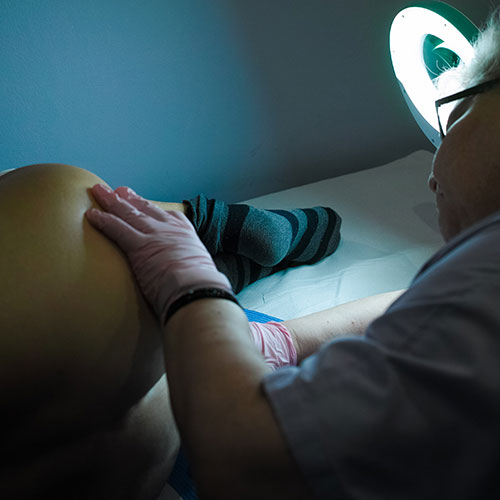
Dr. Luisella Troyer is a Proctologist Surgeon who has specialized for years in bowel rehabilitation and treatment of constipation, both primary and secondary.
In her clinic in Dubai, you can find all the support you need to establish the origin of his constipated state, and dottai have a personalized intestinal rehabilitation therapy, without the use of purgatives or laxatives.
your proctologist surgeon of excellence in Dubai
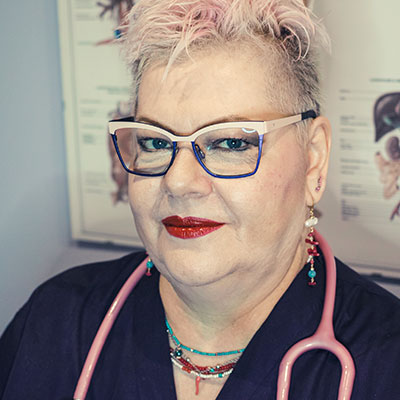
Dr. Luisella Troyer is an italian Vascular Surgeon, specialised in Proctology and Colonproctology, operating in Dubai.
In the modern, well-equipped clinic in Dubai, Dr. Troyer provides specialist medical examinations in Vascular Surgery and Colonproctology, to diagnose and solve proctological problems such as:
- Pathological haemorrhoids;
- Haemorrhoidal thrombus;
- Anal fissures;
- Anal warts;
- Peri-anal abscesses and anal fistulas;
- Chronic constipation;
- Irritable Bowel Syndrome;
- Faecal incontinence;
- Rectocele;
- Descending perineum syndrome
In the clinic in Dubai, Dr. Troyer also performs minimally invasive treatments, such as the treatment of prolapsed haemorrhoids with the innovative sterilised air-stabilised scleromousse.
For her proctological diagnoses and examinations, Dr. Troyer uses the excellence of diagnostic technology, such as the modern high-definition videoproctoscope for Electronic Endoscopic Videoproctoscopy.
All operators and assistants of Dr. Troyer speak English, Arabic and Italian.
So remember...
- DEFECATION IS THAT PHYSIOLOGICAL ACT IN WHICH THE HUMAN BODY GETS RID OF WASTE SUBSTANCES, REMNANTS OF DIGESTION;
- AN AVERAGE HEALTHY ADULT HUMAN BEING EVACUATES ABOUT 150 GRAMS OF STOOL ONCE A DAY , WELL FORMED, SOFT AND CYLINDRICAL;
- VARIATIONS TO THE AVERAGE ARE VERY COMMON, HOWEVER, AND ARE NOT ALWAYS PATHOLOGICAL;
- CONSTIPATION IS DEFINED AS THE LONG-TERM, PROTRACTED INABILITY TO EVACUATE SATISFACTORILY AND EFFORTLESSLY ON A DAILY BASIS;
- CONSTIPATION CAN BE BASICALLY OF TWO TYPES: PRIMARY OR SECONDARY;
- THE PRECISE FRAMING OF THE TYPE OF CONSTIPATION IS ESSENTIAL TO BEGIN A REHABILITATIVE COURSE OF BOWEL;
- PURGATIVES AND LAXATIVES SHOULD ALWAYS BE AVOIDED, AS THEY IRRITATE THE INTESTINAL MUCOSA AND ACIDIFY THE STOOL;
- THE RIGHT THERAPY FOR CONSTIPATION, WHATEVER ITS TYPE, ALWAYS LEADS TO COLON REHABILITATION;
- MODERN MEDICINE AND PHYSIOTHERAPY CAN REHABILITATE THE BOWEL WITHOUT THE USE OF PURGATIVES OR LAXATIVES, THANKS TO ELECTROSTIMULATION AND BIOFEEDBACK

This article was revised and updated by Dr. Luisella Troyer on:
Tuesday 4 February, 2025
Dr. Luisella Troyer is a Vascular Surgeon, specialising in Vascular Surgery and Proctology.
Since her training as a resident, Dr. Troyer has been interested in the study and treatment of proctological pathologies, especially haemorrhoids and haemorrhoid prolapses.
In the course of his practice as a Surgeon, he has accumulated about 5000 operating theatre hours as a first operator, of which about 120 were Milligan-Morgan haemorrhoidectomies.
He is one of the first Doctors to have studied and experimented with scleromousse therapy for pathological haemorrhoids, which he has judged to be the treatment of choice for the non-traumatic treatment of haemorrhoidal prolapses, with resolution statistics of over 95% and therefore often comparable with surgical access.








